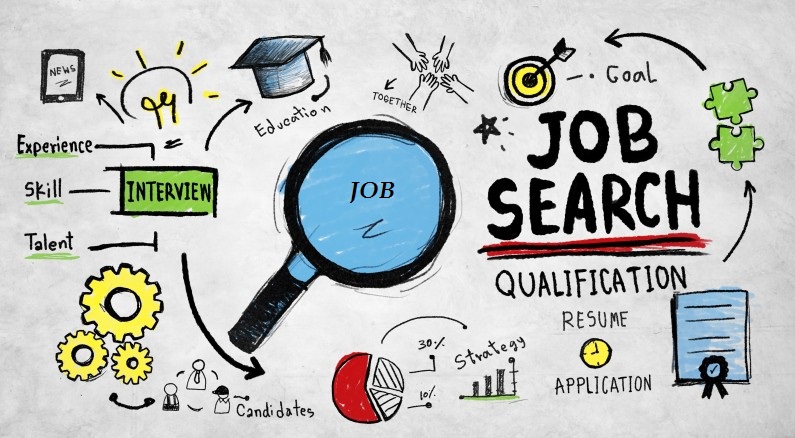


The biggest question roaming around the industry is why one should go permanent rather than temporary? Well, there are many cons and pros defending the question; more to it the people in the room think that they may earn more with permanent positions along with many benefits. In some instances, this may be in another case. You have to look at the amount of work over a whole year and the bigger picture. While this might not always the best thing to jump into.
Taking a good break and moving in the right direction and up the ladder will definitely bring good progress in your career. This is what you see a lot in senior and permanent employees; who actually earn almost as much as they can from their professional and personal experience. More to salary; you will also entitle to have the below-mentioned privileges’ which include:

Here are few pros and cons of Temp Vs Perm
Temporary
Transparency & Flexibility

Most essential reasons most candidates look before they step in any organization is transparency and flexibility. Both of the reasons are cited by many candidates who are looking for Temp positions. The length of the projects they will be put in will give the exact picture about the time frame they will stay in the temporary project; but in addition, there are plenty of options like project contract extensions, holiday’s, flexibility in the working hours and more are attracting the jobseekers to opt for temp positions. Temp work is always a good option for those who want a bit of freedom and flexibility in their role.
Financial Opening

Temp work is not just about flexibility and transparency, but the financial opportunities for temp workers are high and potentially more compared to the permanent employees; even the employers don’t need to be anxious about sick pay, holidays or pensions, and paying cash free for daily rate while as in permanent positions.
Diversity & Practice

Many candidates like to opt for temp projects as they have diverse opportunities to go with and they can easily plan their lifestyle along with choosing the right fit role with good exposure. There are fewer politics to worry about and no need to think about the benefits that come of gaining experience with diverse employers. Here you will have ample of opportunities to pick and work with.
Employer’s Choice

The best reasons that the contract market continues to thrive today is - it’s great for employers too; they have a choice to pick the employee with their required requirements. With restrictions in their place, the hiring process for full-time is tougher than the temp positions. Filling the requirement for a certain period is manageable by offering good package and benefits. However, for many employers, the contract can be a good alternative; as contractors often find themselves in high demand.
Permanent
Association & Safety

Today if we see, many employees are looking for these two reasons which are associated with their jobs and provide them the safety they are looking in for. Close association and safety are two essential things for the employees in today’s work atmosphere. Both need to be closely associated with any kind of work you are going with. Most of the employees like to pick permanent jobs for good association and safety. Whether they’re actual or apparent these kinds of benefits are more usually associated with permanent roles than temp positions.
Getting Further

A permanent position is more defined than temp and often offer strong career path than contract roles with clear opportunities towards the advancement within the organization. Moreover, the permanent employees are more likely to make a choice on the rewards of their hard work on a project than temp, who may previously be on their next project when the approvals are handed out.
Secured Pay

While choosing the temp role can add big numbers in your pay and make your financial map high. However, a guaranteed pay cheque by the end of each month is a huge incentive for permanent employees, along with the benefits that come within – holiday pay, sick pay and any other bonuses the organization might offer.
Know where you like to land

Though flexibility, diversity, financial stability, are great for some employees, but what others are thinking to opt is what we need to prefer to know and where they are based and what are they doing on a daily basis. However, the permanent roles tend to offer to more locked-down employment practice.
What to opt?
While it is impossible to predict whether a temp or perm, obviously, there’s no ultimate answer to this question - the right answer is the one – that right fits for you.
But whichever side you like to choose, we will help you fit in that role as we being the best recruitment partners for many years now.
...
Read More

Stressing yourselves and struggling to grab the dream job is not that tough today if you carry confidence, knowledge and most importantly when you are a team player with all the skills in you. You need to stand in the competition and it can be strong when applying and be interviewing for your dream job. But it cannot be a stop to anyone when you have the desired skills. It’s a pretty rare thing that you are the only candidate for a job, in those cases, you will be approached by a company anyway, be rest assured and face the questions and the completion of the interview process. Try to get the edge on the other candidates who are with you by analyzing their skills and if they carry any extra degree. But how to do that is what we are speaking out on this blog. Try these simple ideas — here are some ways to help you stand-out from the other candidates.
Your Curriculum Vitae (CV)

Reaching out the consultancy or an employer is essential and the first challenge for anyone to get their dream job. But, this will only happen when your CV represents you better than what you are. This plays a vital role to get an interview call or a mail, and then it’s your task to present yourself and grab the job. Make sure that your CV is tailored to the job spec ified and the role offered.
Don’t Fail to prepare & prepare well to fail

Once your interview is secured, and you are all set to join your dream job. Set aside time to prepare well and try to get all the relevant information about the company you are joining. This is the exercise you need to follow before you are hitting the interview and the time you are joining the company too. Before you are hitting the interview you need to make a note of the company’s history, teams, what are they into and what they do to others?
STAR Method

This is a simple method, which will help you to answer the most challenging and competency based questions. Today organizations are very keen to know what was the situation that you have met, how did you deal with it and what was the solution you gave. This is the stage you can prove yourself and how your employer did grade you to be the best player.
A situation or Task: Describe the situation you were confronted or the task; that you needed to accomplish in a shorter time.
Action: Brief how you reacted towards the situation and what you did; this is where the interviewer will be looking for the explanation and how you used skills and attribute that they are testing. Make sure that you take the personal approach as the interviewer needs to hear about your actions, not the teams.
Result: Explain how it all ended. Use this as an opportunity to describe what you accomplished and learned from the situation.
Appearance

No matter what the role is or the organization you are attending; remember that for all little things you need to pay. Make sure for the grammar check, spell check in your CV and what you are wearing. Do not select the clothes which make you feel sick, wear right clothes that fit you the best.
Most of the people aren't going to notice the difference, but some will, of course, do it; but don't go to impress people, which will land you somewhere else. The most important thing is to look professional. Tattoos covered up. One pair of earrings for women; or none is also fine, no earrings for men. No facial piercings at all .
Attitude

Your attitude plays everything when you are facing interviewer. Carry positive body language and attitude. Greet, smile and give the interviewer a firm handshake when you meet him or her. Make eye contact and actively engage with the interviewer, and lean slightly towards the interviewer to show your engagement in the conversation. Do not look up or down, not even to the sides of the interviewer when speaking, as this can be interpreted as disinterest or apathy. Thank the interviewer sincerely for the time and opportunity and express your excitement about the employment possibility.
...
Read More

Use social media to make your job search more effective and efficient. We can see that social media profiles have become an important part of our everyday life, whatever technology or platform you choose you’re likely to have a few different accounts online. You can create your own brand by making your profiles online, especially when working in digital it is very important to realize what you add online!
Dos

Don'ts
As long as you’re conscious about what you put online, you’re on the right track! If you have any questions, don’t be shy! Head over to our LinkedIn, Twitter, Facebook or Google+. We practice what we moralize!, and drop us a line!
...
Read More

Your CV plays a vital role in explaining you better without your presence. This is the first step that makes you through to reach the right door. Once your CV reaches out the right place it’s up to you to impress the recruiter and prove that you are really worth of the position offered. Here are the key points which will help you make good impression from the get-go.
You need to be very active when you have this type of question asked. The interviewer wants to see how serious you are about this position and how good you have prepared yourself. Research well before you hit the interview panel; your homework on the company will help you to stand out of the crowd. Be very clear why they need to get in to their company and the reason you are looking for new job should also be very impressive.
This is the universal question asked by any interviewer. Before you starts explaining yourself list all your skills and how they will be directly applicable for the company if they pick you. Project your achievements from your previous employers, preferably quantified sales, and savings on paper clips. Do not focus on what you want to get out of this job you are interviewing for, as this should be only all about you and what they will get if they hire you.
When you get this type of questions, you have to well prepare yourself and explain how well you can work with the team. Elaborate yourself and give the best examples of your team achievements and recognition you have received. Tell how strong you are alone and how well you will be equipped when you are with a team as per requirements.
It’s the time you have to praise yourself before the interviewer. While doing that give specific examples that you have achieved greatness in the past and tell them if you have solved any serious issue for your company’s biggest client. Whatever nice and tangible achievement makes you special can be memorized and get ready to deliver it when prompted.
This is the final question which gives you a hint that you are probably doing well. Be very clear and indicate how much you are expecting. So that the interviewer can calculate how much money they can make from you and when to begin doing so. Do not look so desperate, which will not help you any way. Indicate that you will be flexible and that there will be a way to work out both the financials and start date, should you get to that stage.
Finally, what is your experience of these five questions vs. small talk in interviews?
...
Read More

Stress in any and every organization has become common today, but excess stress can interfere your personal and professional life. This can be a cause to break down your professional network which will in fact impact on the productivity and spoil your physical and emotional health. Your ability to deal with it can mean out of the difference between success and failures.
It’s not in your hand to control everything at your workplace, but this doesn’t mean that you are powerless – when you are struck in any difficult situation. Finding ways to manage workplace stress or looking out to opt out of hat job will not be that helpful as it will give you temporary relief, but rather focusing on one thing will always be within your control.
For workers anywhere, the financial system may feel like an emotional move with layoffs and budget cuts which result increased fear, insecurity, and high-level of stress.
Your emotions should be communicable as stress can impact the quality of your interactions with others and sometimes many people lose their prospects because of this. The better you manage your stress, the more you'll positively influence those around you, and the fewer others stress will negatively affect you.
Let us look at some more tips that will help you to come out of stress and help yourselves to grow professionally and personally.
There are many ways to reduce both your personal stress and the stress you get on the job side. They include:
When you feel stress at your workplace, you lose confidence and become irritable or introvert. This is the first reason which will make you less effective and less productive in your job. Thus, it also makes your work less rewarding. When you start ignoring the warning signs of stress at your workplace it leads to bigger problems. Chronic and intense stress can also lead to physical and emotional health problems.
Signs and symptoms of excessive stress at job
Common Causes of excessive Stress
When you are unable to manage stress at work, improve your personal life, as it adversely impacts your health and makes you stress-free. When your own needs are taken care of, you will be stronger and resilient to stress. The better you feel, the better you’ll be equipped to manage your work stress without becoming overwhelmed. Taking care of yourself doesn’t mean that you overhaul your total lifestyle. Small to small things can lift up your mood, increase your liveliness, and make you feel that you’re back in the driver’s seat again.
Start your day with positives and always take things one step at a time, as this helps you to make more positive lifestyle choices, and you can soon notice a decline in your stress levels, both at home and at work. Get into regular exercise as it is the first stress burner; listen to good and soothing music, read good books, eat your favorite food which will not only increase your energy levels but help you to take the physical stress. To be positive in every situation is always suggestible by experts; so start adapting it. Break up your activities and do what you like most first, last but not least have a sound sleep as this will help you to wake up with a fresh mind and start your day with a refreshing way.
When your work and workplace stress threatens you, there are simple steps to regain control over yourself in some situations. Always be the first to adapt the ability to build a sense of self-control in stressful situations, as this will help you to be well-received by your managers, coworkers, and subordinates alike, and which also lead to good relationship building at your workplace.
As we discussed, every job today is very stressful, retaining a large measure of self-control and self-confidence by learning and practicing emotional intelligence has also become very important in today’s lifestyle. Emotional intelligence is the skill which helps you to manage your emotions in positive and practical ways and use them properly. When it comes to love your work and increase the productivity, emotional intelligence matters just as much as intellectual ability. By adapting this skill you can communicate with others and draw people to you, one can easily overcome differences, fix wounded feelings, and learn how to defuse tension and stress.
Many of us take job stress and make their jobs worse with negative thoughts and behavior. Breaking out your stress at your workplace will never help you, but it makes your job more complicated. Thus to get rid of such situations one has to turn around these self-defeating habits so that you can very easily be able to handle the situations.
No project, situation, or decision is ever perfect, so trying to achieve perfection on everything will just add needless pressure to your work and day. Setting unrealistic goals and struggling to reach them is setting you up to fall short. Always aim to do your best, so that no one will ask for more than that.
Be on time and do not run late, set your clocks and watches fast to give yourself extra time. Do not make your desk mess, throw away the clutter; and make sure that you are aware where everything is as it saves your time and cuts stress. Make to-do lists and plan your day to make feel less overwhelmed.
The manager should play the major role as to keep stress levels in the workplace to a minimum. As they can act as positive role models, particularly in times of high stress. If the manager can remain calm in stressful situations, it is much easier for employees to also maintain their calm.
In addition, there will be many organizational changes that managers and employers can make to reduce stress in the workplace. That include:
Communicating effectively at work can help you to improve the teamwork; decision making will be easy with problem-solving techniques. That means not just by understanding the words or the information being communicated, you can also understand the emotions the speaker is trying to communicate within the group.

...
Read More